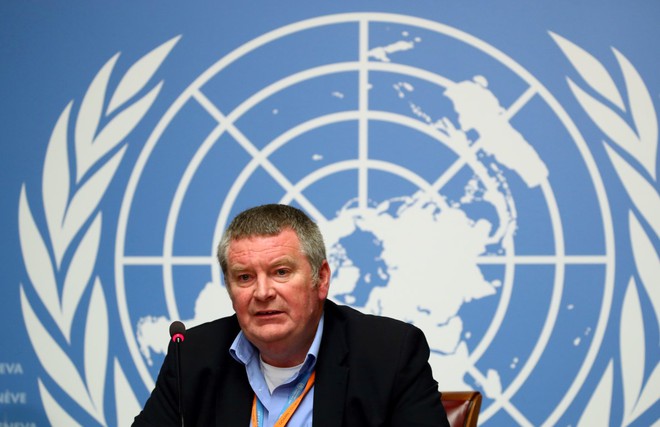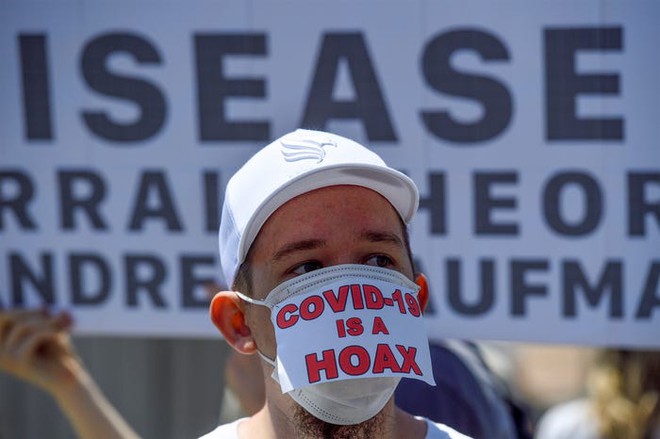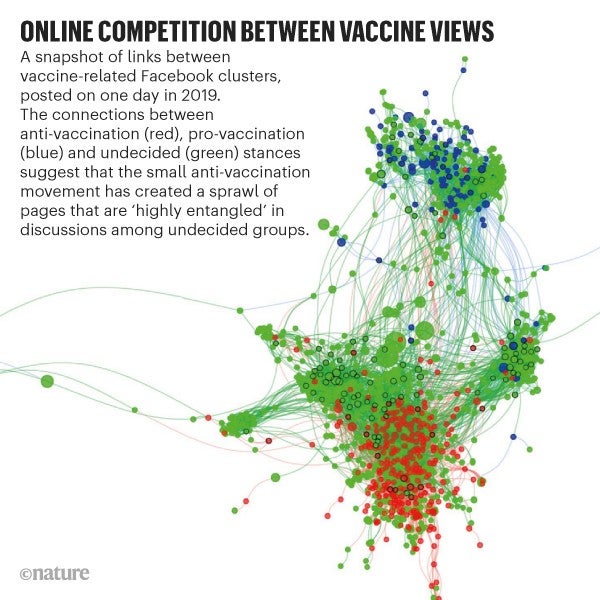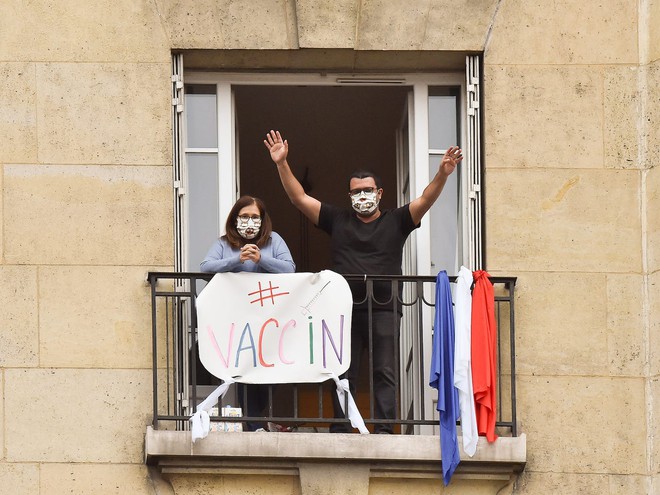WHO: COVID-19 could “never disappear”, if the anti-vaccination groups are as active as they are today.
- Tram Ho
In November 2019, before the COVID-19 pandemic broke out in China, 14 children living on Samoa Island in the middle of the Pacific had to be on mechanical ventilation. All infected with the same infectious disease are thought to be much less dangerous than COVID-19: measles.
The measles outbreak on Samoa last year killed 81 people, all of whom would have survived the vaccination. Measles has also flared up again in recent years in Europe and the Americas, prompting the World Health Organization (WHO) now a new concern.
They think that humanity will never eradicate COVID-19, even if there is a vaccine. Because the anti-vax movement, or anti-vaccines, is still blooming on social networks.

” I don’t think anyone can predict when or if this disease will go away,” Mike Ryan, who is responsible for managing WHO health emergency operations, said at a press conference. yesterday. ” We have a great hope, if we find a highly effective vaccine, then we can distribute it to everyone who needs it in the world.”
But Ryan’s concern is that there is a group of people, antin-vax people who will not use it and not give their children vaccinations. A recent US survey found that only 53% of respondents were willing to get COVID-19 vaccine. Community immunity in that context would be a very difficult goal to achieve.
” Forgive me if I doubt, but if we have some perfectly effective vaccines on this planet and we don’t use it effectively, then ultimately we can’t. get rid of diseases we could have eliminated , “ Ryan said. “[I am concerned that] this virus may never disappear.”
The campaign against vaccines on social networks is becoming more and more professional
While scientists are trying to race against time to create a vaccine against the SARS-CoV-2 virus that causes COVID-19, anti-vaccine people are shouting against. it. Anti-vax groups are seeding, fabricating strange stories.
They said testing of the COVID-19 vaccine in the UK killed a volunteer, while that was not true. Some people also think that COVID-19 vaccine is just an excuse, actually the government plans to use these injections to implant microchips on them.
In April, while the United States was executing a social restraint order, some people carrying anti-vaccine banners marched on the streets.
Last week, a video released on Youtube interpreted a conspiracy theory about the pandemic and said that the COVID-19 vaccine could kill millions of people, more than the number of deaths caused by the disease. The video received more than 8 million views before it was deleted.

Anti-vax groups usually have very small numbers, but their communication strategy is very effective and extensive, a new report from George Washington University said. The study, led by data scientist Neil Johnson, analyzed a total of more than 1,300 Facebook pages with more than 100 million followers.
He divided the pages into three groups: 317 pages against vaccines, such as RAGE Against the Vaccines, which currently has 4.2 million followers, 124 pages of vaccine support, such as the Bill & Melinda Gates Foundation with 6, 9 followers, and 885 neutral pages received information streams from both sides such as Breastfeeding Moms with 74.1 million followers.
Their goal is to count the links of these Facebook pages together, a method known as ” snowball sampling “. Johnson will then run an algorithm to graph these links, with red dots (representing the vaccine protection site), blue (representing the vaccine advocacy page) and green (shown for neutral pages).
The size of the circles represents the number of followers on each Facebook page and the links represent the links between them. Result:

The chart clearly shows that anti-vaccine Facebook pages are drawing more interest from neutral sites. These sites penetrate a larger neutral community of vaccine advocacy sites.
The study was conducted from February to October 2019 to coincide with the time of global measles outbreak. The authors say that during this time, anti-vaccine sites grew faster than support pages.
The red and blue pages are also attracting various followers. This shows that the blue pages are fighting in the wrong place with the anti-vax movement, Johnson said. They attracted a community that supported and trusted the vaccine but failed to inspire the other community, containing many people who are confused and hesitant.
In contrast, anti-vaccination sites have reached key populations, such as pregnant mothers or those with children in elementary school. The content of their discussion is also very diverse, ” catching trends ” and hitting on emotions: including stories, conspiracy theories, typing into the concerns and concerns of parents about children’s health, ringing. Fearful.
The message of the site group supporting the vaccine is often very simple, surrounded by the two main ideas that vaccines work to prevent and save people. These scientific messages are often very dry and difficult to enter the human heart.
In contrast, the anti-vaccination groups are small but use communication very well. They can create stories that strike not only fear, but also spiritual emotions like motherhood.
Anti-vaccine groups also take better care of their readers, with articles not only about vaccines but also many other health issues, giving their followers a sense of being updated with useful information. Useful and important is to be heard.

These are the initial reasons why the anti-vaccine movement has grown so well in the social media era. And it threatens our chances of winning COVID-19.
Scientists say that to be able to win the pandemic, at least 60-70% of the global population – equivalent to 5.6 billion people – need to be vaccinated in order to create community immunity. However, a recent CivicScience survey found that only 53% of Americans aged 35-44 said emphatically, “Yes, I will get the COVID-19 vaccine.”
Similarly, the percentage of adults in the United States who feel “very comfortable” with vaccinations is declining and the proportion of people who say they are ” uncomfortable” with the vaccine is increasing since January. Ryan said it was a consequence of “a lack of will and determination to invest in health systems to deliver vaccines to the people.”
Now , the healthcare front is not only happening in hospitals or residential areas, but also on Facebook discussions. And the anti-vaccine groups seem to be gaining an advantage in this cyberspace.
Reference Businessinsider, Science, Scientificamerican
Source : Genk
